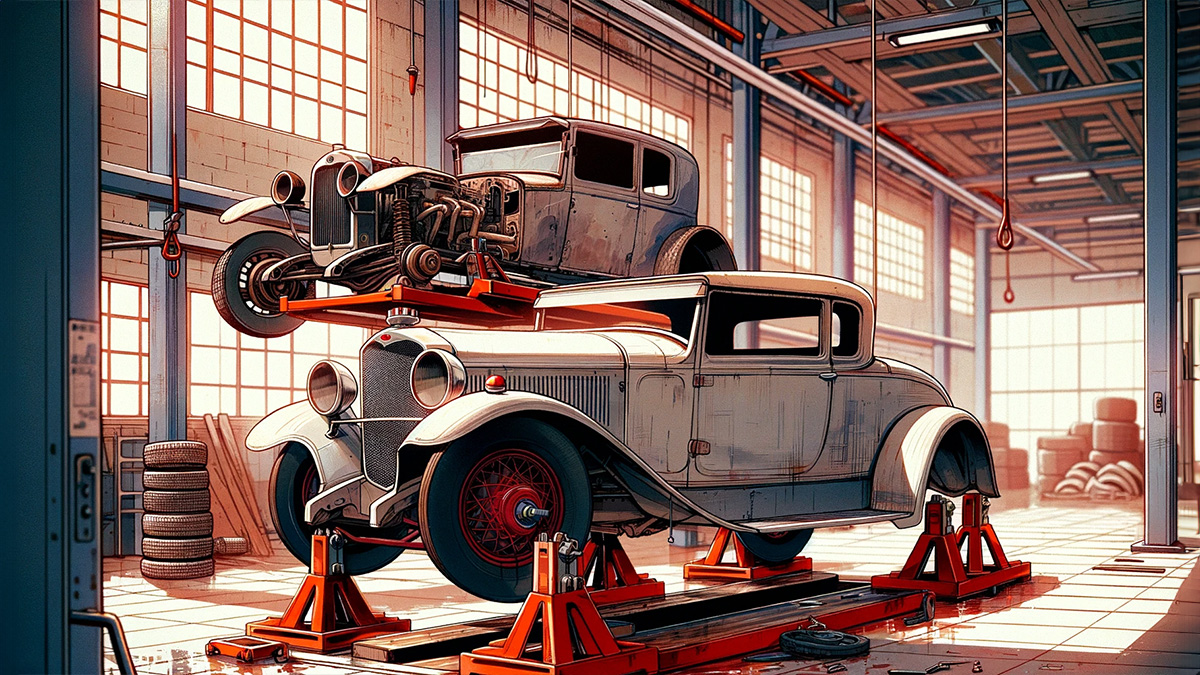For those who want to do something that is 90% offline, a lot with their hands is something to be proud of – and something you can use at the end of it – you’ve probably thought about your own car project.
What is a car project?
A car project is you or a group of people who have a passion for finding a used or broken-down car that you like and putting in the time, effort, and cash to fix it up. Some people switch out a car project and opt for a bike to build.
How much work the car needs usually isn’t something many people who are new to it can spot just at a glance – which means you’ll need to put in a little bit of research first to find the right one for you. But in the end, you’ll be taking something defunct and getting it in working order to use or sell.
How do you choose the right car for you?
Like with any new project, you need to decide where to start and how much time and money you have to dedicate to it. When it comes to car projects, they can run on for years – because there is no rush, and depending on the car, you might want to wait for original parts to become available – or you might have to wait a while while you save for the next part.
There is usually a skill gap, too – once you secure the car, you have all the time you need to learn, and sometimes that is easier with it in front of you rather than trying to learn everything first before getting your car.
The right car will be in your budget with some change to spare, a car that you love the look of, something that gets your imagination going (because what it looks like now won’t be how it finishes up), location, space, and time.
Where can you find cars for restoration?
This is one area of the process that you should take time to get right. Many people fall into the trap of getting carried away with the idea of the project, buying something quickly instead of holding out for a make and model that they really want. Here are some of the best places to find cars for your restoration project:
Live car auctions – you can go in person or find them online, and you’ll take part in a bidding process. Often, it will be 90% of cars that need little to no work or fully restored cars, however, there will be a couple here and there that are going to be perfect for a restoration project.
Online marketplaces – these can be a treasure trove of cars that are perfect for first-time restoration. Often, people will place a car here when they aren’t aware of the value or want a quick sale. The bonus is that most of the time, you can use filters in the search to make sure that the car is close enough to your location so it can be towed.
Classifieds – a little less tech, but many people still place notices in local newspapers.
Auto magazines are one of the best places to look for conventions, tips, and classifieds that will meet your needs.

Why shouldn’t you rush?
Unlike many other hobbies, buying a car for a restoration is going to have an upfront cost, a storage cost – unless you have a garage, and the parts can cost a pretty penny, too. Quickly buying a car that you think you want, only realise that it doesn’t meet your expectations – and actually, the parts are so rare it’s not as simple as getting 2024 ford mustang exhaust or the right material to line the chairs from a haberdashery.
Although watching a ticking countdown on an auction or seeing your bid get beaten can be tough, it is worth holding out for the car you want.
Considering The Legal Side Of The Project
It’s not just about the creation and the condition – you also must take into account the legal aspects. If you plan on restoring a car to roadworthy condition, ensure that it complies with all the safety standards. Of course, ensure that it is also fully insured before hitting the road. It’s also an excellent idea to familiarize yourself with a trusted car accident lawyer as all kinds of issues can happen going forward. You might not need one for a while, but accidents can happen to newly restored vehicles. Knowing who to turn to can help you to navigate awkward moments and protect everything you’ve worked on.
Disappointment is common
There are plenty of disappointments to be had when you are looking for the right car, at the right price and the parts you need too. Not to mention that sometimes you may need to pay a lot and wait for parts to come from other countries.
So getting some disappointment and missing out on some stuff is par for the course – so a balance between not rushing and being tenacious enough to get what you need is important.
Budget
When you first start looking at cars, you might be surprised to see how expensive something that doesn’t work can be. The rarer they are, the more likely it is that you are going to need to pay out more than you’d like.
You’ll need to choose a make and model that fits your budget – it is wise to have a set and solid budget. It can be very tempting to blow the budget to get the car you want, but you are going to need those extra reserves to fix up. And, from time to time, you are likely to need to get a mechanic who can take care of the most important and skill-heavy things.
Comparison
Within each make of car, there are some that are cheaper and others that are going to cost a lot more. As an example, if you want a Mustang, you can find an affordable one and reasonably priced parts if you buy anything between 1964 and 1968. However, if you find a 1971 Mustang Boss 351, that can be a heck of a lot more expensive.
And, even when a restored car is complete – no matter how high the standard, there is a cap when it comes to the value and how much you will likely get back for it if you intend to sell it.
Spare part availability
The certainty of part availability is something that you are going to need. If you choose a car for restoration without first researching the parts you need, the cost, and how available they are, you might be unfortunate enough to find that the parts are rare and cost more than you want to spend.
It is also a good idea to have a rough idea of how much your maximum is for parts or look at how your finances are over the coming 12 months and plan which part is most important and for when.
Experts
Experts cost money unless you have one as a friend who is willing to help – you’ll need to source and budget in a few callouts or book into a garage to get some of the major works done. And, when you first look at the bodywork, having someone with you who can assess how workable it is can be incredibly valuable.
You can also request a pre-purchase inspection to be done by a third-party business so that you know for sure the condition of the car and understand what work needs to be done.
Here are some top tips for getting the right people: 6 THINGS YOU NEED TO KNOW BEFORE HIRING A CLASSIC CAR RESTORATION SHOP – Dandy In The Bronx.
Conversation
If you have access to the seller, or the person handling the sale it is important to have a conversation. You can ask a couple of questions – and very specifically about any work that has been done to date. In some cases the car that is up for sale has had someone work on it for months or years and never complete the project. If you’re very lucky they will have done much of the main work that needed to be done, and you can have the joy of bringing it to completion.
You can also ask where the car came from, and any other paperwork or details that they have – since the car is likely at least 20 or more years old it will have a history and that can be important to know.
Minor details
When people are thinking about car restorations it is typically the big stuff that pops to mind. It is often the case that the engine and the body work comes to mind, but there are lots of little details that you need to keep in mind. The finishes like tha carpet, the interior roof, the leather trims, and the material on the chairs – not to mention the foam used to fill them. The little details are the first things that prospective buyers will see – which will be what they judge the rest of the work quality on.
So while these minor details might not be at the forefront of your mind it is a good idea to consider them – because they are all part of the restoration.
Restoring your first car is exciting and produces something great at the end of it – one that you can drive or sell! A car restoration project can be long, as isn’t without its challenges but it can be one of the best projects you’ll ever do.
Global customers rely Bloomberg Sources to deliver accurate, real-time business and market-moving information that helps them make critical financial decisions please contact: michael@bloombergsources.com


